James I. Packer: Seeing is believing
Packer used to say that his conversion had not been spectacular. The preacher showed him at the end of the sermon that, to be able to attend the party, he had to come to Christ.
12 AUGUST 2020 · 12:34 CET
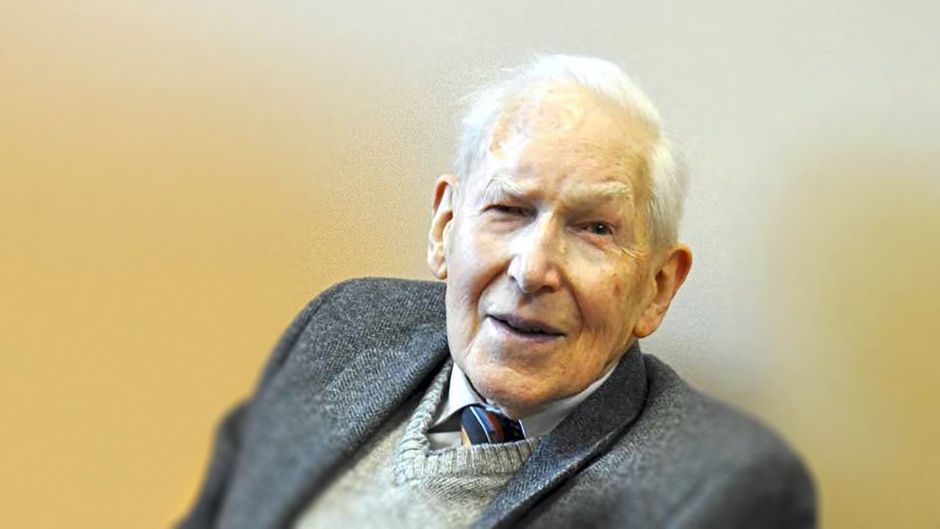
“As clowns yearn to play Hamlet, so I have wanted to write a treatise on God”, states J. I. Packer (1926-2020) at the beginning of his best-known book “Knowing God”, though he recognises that “this book is not it”.
The book contained articles he had published in Evangelical Magazine, which he co-edited with Lloyd-Jones. Packer always believed that the book was about God’s attributes and not about his own personal experience of God.
Packer’s works are characterized, from the very first page, by his inimitable humility, intelligence and subtlety. Listening to him was somehow difficult due to the speech impediment he suffered because of a childhood accident.
However, reading his books was always a pleasure for me, especially in the original language. He was unparalleled in the writing of short articles which were published in Christianity Today.
The first thing he did when he got the magazine was to look for the page where his work was published. I still remember, back in the 80s, the impression his compilation of articles made on me, especially the British “Laid-back Religion” and the American “Hot Tub Religion” ones.
I still believe that his writings about healing and divine guidance are the best I have read on these topics.
I am glad that Packer is finally Home after suffering such terrible illness in the past few years. Not being able to read, speak or write must have been unbearable for him.
The news of his death coincides with news of my recovery from cancer. After and unexpected illness, I have returned to Packer’s biography by Alister McGrath.
Packer very kindly wrote the brilliant prologue for him, which, in my opinion, is more original than the rest of the book. Below I transcribe the first paragraph. You will probably want to read more. Unfortunately, they are not his own memoirs, but a book by McGrath:
Typically British
Packer related what happened to him in America after he had given a lecture. A young woman approached him and, without any introductions, asked him if he had an allergy. “No”, replied Packer.
She asked him if he had ever had therapy. “No”, he answered. “You are weird”, she told him and suddenly disappeared. He was left with the feeling that, whether that was true of his personality or not, the world was a lot weirder than he thought.
Packer was typically British, despite having lived half his life in Canada and having been elected the most influential theologian author of the 20th century, after C. S. Lewis, by the north American Christians- according to a famous questionnaire in Christianity Today.
His subtle irony showed that, as he said, he must have been very cynical in his youth. He believed it was a defence mechanism to counteract the traumatic effects of the accident he suffered as a child. Interestingly, he stressed that Ecclesiastes had rid him of his cynicism.
Packer had received a privileged classical education in Oxford but he was not pedantic about it, unlike most intellectuals. He possessed the proper British kindness but lacked the empty courteous mannerisms.
He was simple but profound. He came from a deep-rooted farming family in Oxfordshire who had lost everything following a bovine epidemic.
His grandfather was a landlord in Gloucestershire, however, his father started to work for the Great Western Railway, which had connected London with the port in Bristol since the 19th century.
At the time of Packer’s birth in the 20s, his father was in charge of the local company office. Little Jim had a younger sister, but he was a shy and lonely child. He played alone, either with his Meccano constructions or with his electric trains.
Since his mother was a schoolteacher, he learned to read early and he would devour any book that came his way. He started to write stories as a young child, using a type writer that he was given on his 11th birthday, instead of the usual bicycle, after he had spent quite a lot of time using one that was in his father’s office, where he accompanied him every Saturday. He never got to use a computer.
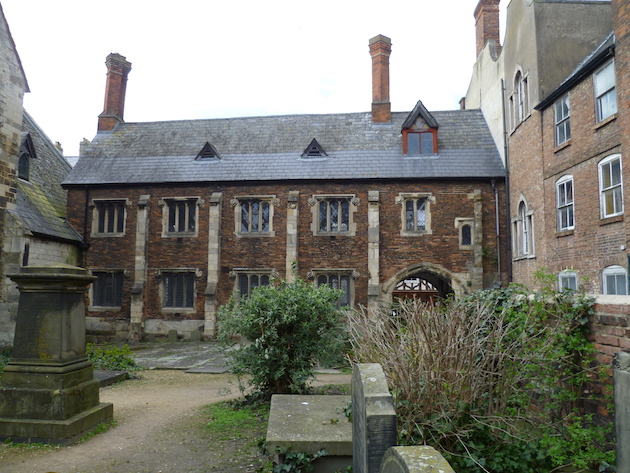
Tragic accident
His life was marked by an accident he suffered in 1933 when he started school, aged 7. Due to his quiet character, he was bullied by some of his school mates. One of them was chasing him out of the playground of the school they attended, the national school of Gloucester’s cathedral.
He crossed the London road and was hit on the head by a passing van. He was taken straightaway into theatre, where they extracted bits of bone that had crashed into his head, so he was left with a two-centimetre gap on his forehead, which was covered by an aluminium plaque during his childhood.
Although they feared he would suffer brain damage, his mind worked really well, although he could not speak properly- he slurred his words. He did not read his lectures and knew exactly where things were amongst the piles of paper on the floor of his house. His head was in good order.
To avoid further brain damage, he was not allowed to practise sports, ride a bike or play in the playground. After three weeks in hospital, he had to stay at home for half a year. His parents sent him to stay with his grandmother in Torquay so that he could have a change of scenery.
Despite being in the south of England, the weather in Torquay can be cold and very wet. Therefore, he had to spend his days inside the hostel, which had some books for the use of guests.
Barely 8 years of age, Packer managed to read all the mystery novels by Agatha Christie that he found at the hostel. Children at that time would read any type of genre, not just children’s books, as that had not been developed widely.
Once he reached university, Packer had read all the classic Russian books. He preferred Dostoevski to Tolstoi. He was passionate about “The Idiot”, “Crime and Punishment” or “The brothers Karamazov”.
He was also interested in psychology. As an adolescent, he read “Psychological Types” by Jung and “Moses and monotheism” by Freud. He got most of the books he read from the library. He did not have his own Bible, but sometimes he would glance at the James’ Bible that belonged to his grandmother.
Despite attending the Anglican church with his parents, Packer was not interested in religion. His mother was an Anglo-Catholic. He did not go to Sunday school, but was confirmed in the local church of St. Catherine at the age of 14 to please his mother.
The young pastor who prepared him for confirmation was more concerned with how to take communion and with moral questions than with personal faith. Packer attended St. Mary de Crypt, the secondary school where George Whitefield, an evangelical preacher of the Revival of the 18th century, had studied.
But, of course, Packer didn’t know who that was! He used to play chess with the son of a unitary preacher, who tried to persuade him that Jesus was just an ethical teacher. However, Packer was not interested in religion.
War and peace
At the end of secondary school, Jim chose the classical subjects. He was, in fact, the only pupil in his school to choose Language, History and Greco-Roman Philosophy. He was taught by the headmaster, who himself had done classical studies at Oxford university.
It was through him that Jim was able to gain a scholarship to study at Corpus Christi, the same college where he had studied. As he was only 17, he had to wait a year to go to Oxford. It was 1944 and the Second World War had been going on for five years.
The city of Oxford was a ghostly place. Many buildings were closed and the majority of university students and professors that were eligible had gone to war. Packer was exempt because of his brain injury.
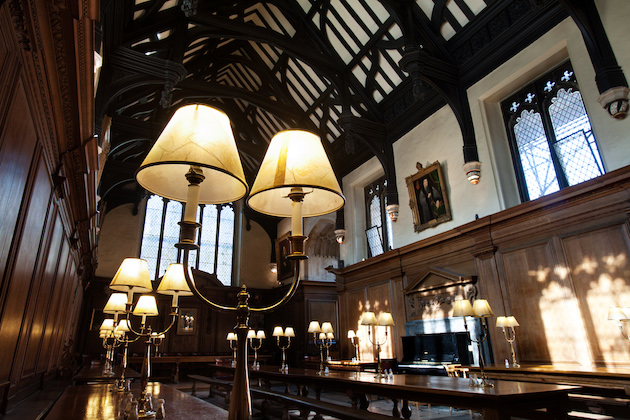
Like the rest of the country, Oxford was plunged into darkness every night. The only heating came from the fireplaces, and coal was also rationed. The only warm place was the library.
Food was rationed too but, to keep the tradition going, they continued to eat formally in the dining room. Like any student of Classics, he was asked to recite prayers in Latin before the meals. Daily mass was also compulsory. These services were not evangelical but followed the Anglo-Catholic movement of Oxford.
Eric Taylor, a friend from secondary school who became an evangelical Christian when he arrived in Oxford, wrote to Packer telling him his testimony. He had found a Christian union, known as OICCU, who led him to faith.
This movement followed the one that originated in Cambridge two years before and it was instrumental in the evangelical identity of the university. Wycliffe Hall in Oxford had been a very influential theological school since 1877, where many evangelical pastors were formed.
There were two evangelical churches in Anglican Oxford- St. Aldates and St. Ebbes. It was at St. Aldates that Packer found peace with God.
Through the window
Packer, like Schaeffer, was searching for “reality”. That was his motivation in Oxford. He went along to the meeting that welcomed new students, organised by the members of OICCU.
There, he listened to a talk about Christianity, which failed to interest him. Packer had been a fan of jazz since adolescence and he used to listen to the music that Jerry Roll Morton was making in the New Orleans of the 20s.
Packer used to play the clarinet in a band in Oxford; he was not very keen on orchestral music. He liked to listen to King Oliver, Bechet, Bunk Johnson or Louis Armstrong. Just like Schaeffer’s best friend, Rookmaaker, Packer thought that jazz was the best thing of the American culture.
In the 20s, the evangelical student movement of OICCU had lost its identity once it merged with the more liberal one SCM, but they separated later. OICCU struggled to exist during the war with just a dozen of people from Corpus Christi.
They would organise a Bible lecture on Saturday afternoons and an evangelistic sermon on Sunday evenings. From 1934 they had been using what would become the chapel of St. Peter’s College and the Presbyterian church of St. Columba, but during the war they used St. Giles, and mostly St. Aldates.
Ralph Hume, who was the representative of OICCU for Corpus Christi, invited Packer one Saturday afternoon to a talk about the supremacy of Christ in Colossians. To his dismay, Packer did not want to return to St. Aldates the Sunday evening, but he did the following one. The sermon was preached by an older pastor from the Weymouth area, whose name was Earl Langston.
Packer was left cold by the first part of the sermon, but, like Stott, when the pastor shared his conversion at a boy’s camp, he suddenly realised that he was not a Christian.
Packer did not use imagery very often to describe things, but he said it had felt as if he was looking at a party through a window- he could see and recognise the games they were playing inside the house; he knew the rules, but he was on the outside. He had not gone inside. He realised God was telling him something.
His conversion was nothing spectacular
Packer said that we mustn’t abandon our faith in God’s teaching just because we can’t solve the problems that it poses. Our own mental intellectual capacity is not the proof and measure of divine truth.
He stressed that we shouldn’t stop believing for lack of understanding or wait to believe till we understood. He quoted Augustin saying that if you don’t believe, you don’t understand. Faith comes first, then sight.
That was God’s order, not the other way round. And the proof of the sincerity of our faith is our disposition to keep it that way.
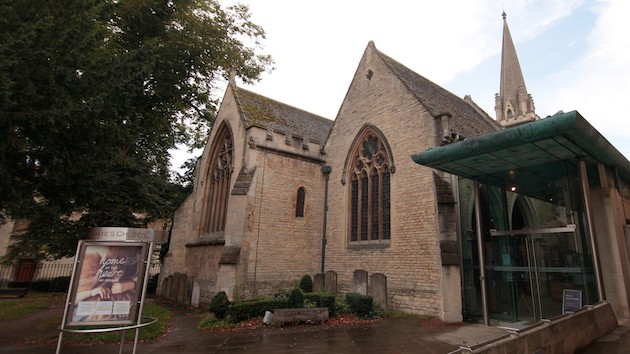
As Packer used to say, his conversion “was nothing spectacular”. At the end of the sermon, the preacher showed him that to go to the party he had to come to Christ. At OICUU they did not accustomed to call people to the front, raise their hand or repeat a prayer.
They just sang Charlotte Elliott’s hymn, a sick woman who had been visited in Brighton by the swiss preacher Cesar Malan in 1822. Years later, she wrote a poem as a testimony of the faith that resulted from years of pain and sorrow.
The music and lyrics were printed and distributed in England to raise money for a school for poor children. It became the best-known evangelical hymn used to call sinners to repent. Its lyrics still move me….
Just as I am, without one plea
But that Thy blood was shed for me
And that Thou bid'st me come to Thee
O Lamb of God, I come! I come
Just as I am, though tossed about
With many a conflict, many a doubt
Fighting and fears within without
O Lamb of God, I come, I come
Just as I am, and waiting not
to rid my soul of one dark blot
to thee whose blood can cleanse each spot
O Lamb of God, I come, I come
Just as I am, poor, wretched, blind
Sight, riches, healing of the mind
Yea, all I need, in Thee to find
O Lamb of God, I come, I come!
Just as I am, Thou wilt receive
Wilt welcome, pardon, cleanse, relieve
Because Thy promise I believe
O Lamb of God, I come, I come
Because Thy promise I believe
O Lamb of God, I come, I come
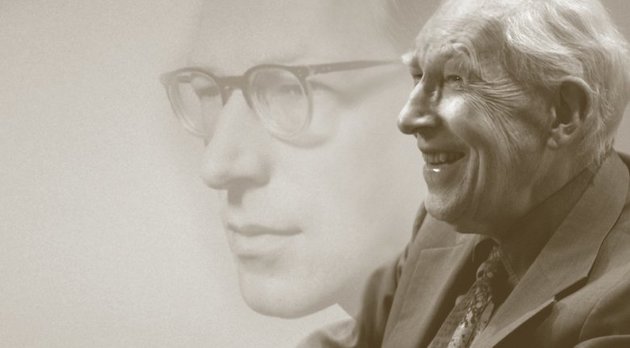
Published in: Evangelical Focus - Between the Lines - James I. Packer: Seeing is believing
